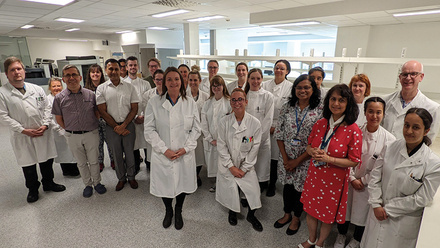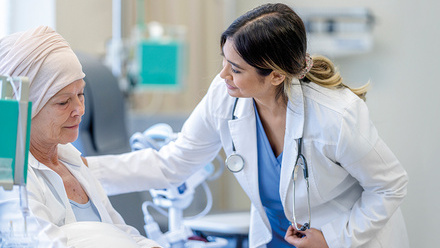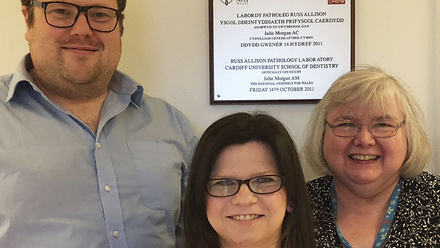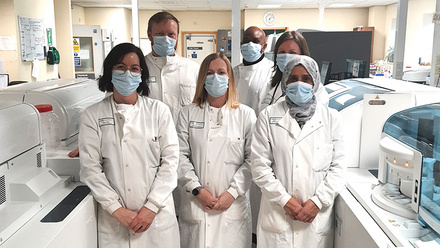My Lab: At the forefront of medicine
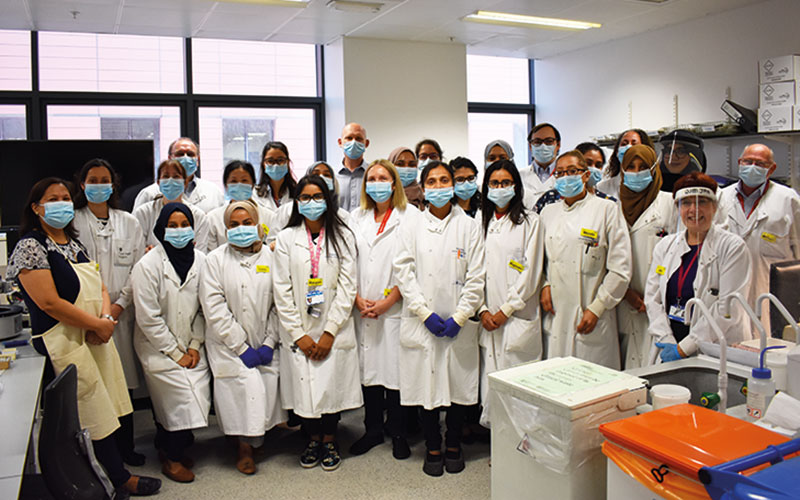
The Royal London Hospital (RLH) represents the forefront of medicine in East London. The hospital is well known for Joseph Merrick (The Elephant Man), who was treated here from 1886 to 1890. RLH is part of Barts Health NHS Trust – the fourth largest NHS trust in England, providing care to over 2.5 million people.
It is home to the London Air Ambulance and is a major trauma centre, leading the UK field for developing effective, coordinated systems in the event of a major incident. RLH supported the NHS Nightingale Hospital initiative that was able to provide up to 500 ICU beds, fully equipped with ventilators and oxygen. This is the largest ICU in Europe, providing exceptional care for patients during the COVID-19 pandemic.
I am employed in the cellular pathology department at RLH as a Trainee Biomedical Scientist. I have been here for four years, since joining the team as a Medical Laboratory Assistant. In May 2020 I volunteered at the NHS Nightingale London, where I was involved in the triaging of samples in specimen reception to the relevant disciplines for processing.
The cellular pathology department is one of the largest and most versatile in the country. Barts Health offers an unrivalled range of specialised histopathology, cytology and diagnostic frozen section reporting. The department comprises histopathology, cytology, electron microscopy, mortuary services and tissue bank.
Cellular pathology has a large workload of over 68,000 histopathology and 10,000 diagnostic cytology specimens processed in 2019. The department also undertook over 350 post-mortems. Our team comprises over 120 members of staff, consisting of anatomical pathology technicians, medical laboratory assistants, assistant practitioners, biomedical scientists, registrars and distinguished consultants.
Our laboratory is UKAS ISO:15189-accredited and, as a teaching hospital, provides ample opportunity for personal development and career progression. Our department supports staff to complete the registration and specialist portfolios and the MSc in Biomedical Science. The laboratory assists in developing the next generation of scientists through a sandwich-year partnership with the University of East London.
With advances in technology, the department has acquired the ability to incorporate digital pathology into the daily running of the laboratory. It allows the user to share digital images across laboratories, thus enabling experts around the world to collaborate on cases. This consequently enhances the accuracy of diagnostic techniques via an online portal that can be remotely accessed to study the manifestations of disease. Due to the COVID-19 pandemic, this advancement could not have come at a better time and will prove beneficial in such instances.
I am extremely fortunate to work with a diverse range of colleagues who are all committed to meeting the needs of the service user, whilst upholding stringent quality and health and safety standards of practice. Communication and teamwork are second to none at RLH. I look forward to completing my training and progress in this chosen career pathway with many exciting future developments on the horizon.

